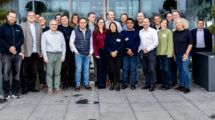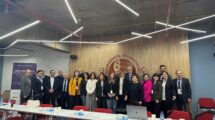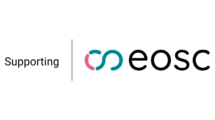This article was first published on the AfricaConnect3 website.

The upgrade, sponsored by the EU-funded AfricaConnect3, marks the start of a new era for research and education (R&E) collaborations between the local Moroccan scientists, researchers and students and their worldwide peers, thanks to the high-speed and affordable connectivity. It is an important milestone for MARWAN and the entire Moroccan R&E community in preparation for the start of the MEDUSA submarine cable project. The project will bring long-term high-capacity connectivity (at an access capacity of 200Gbps) to Algeria, Egypt, Morocco and Tunisia through the European Commission’s grant investment and foster ties with the European peer organisations eventually contributing to alleviating the digital divide.
Morocco was the first country in the South Mediterranean region to interconnect with the global R&E network in 2004 via the EUMEDCONNECT project. MARWAN was created in 1998 and runs under the Centre National pour la Recherche Scientifique et Technique (CNRST). In 2022, the network migrated to the latest topology (MARWAN 5) and today connects more than 250 higher education and research institutions through 42 links covering 45 cities in Morocco. Since its inception, MARWAN has been a driver for Moroccan universities and research centres to develop new services in education, technology transfer and scientific research, increasing the uptake of their service portfolio, including High Performance Computing (HPC), eduroam, identity federation, IPv6, digital certificates, eduVPN, content caches and software repository mirrors.
“Connecting MARWAN to GÉANT has always been a priority for researchers in Morocco. The upgrade to 10 Gbps is an opportunity for our researchers to become even more involved in scientific collaboration with their European counterparts. It is also a key step to prepare ourselves to be part of the MEDUSA project under the best possible conditions.” says Redouane Merrouch, Director of MARWAN.
Among MARWAN’s member institutions, Mohammed VI Polytechnic University (UM6P) hosts the largest supercomputer in Africa, also known as “Africa’s most powerful supercomputer”, Toubkal. The 3.15 petaflops supercomputer was launched in February 2021 and is hosted within the new Africa Supercomputing Centre, supported by the University of Cambridge. With more than 69,000 cores and 8,000 terabytes of combined storage capacity, this is another tool that will help conduct research for institutions not only in Morocco but across the continent.
In October 2022, MARWAN and the pan-Arab organisation ASREN brought together in Marrakech university professors, scientists and ministerial officials to discuss the role of NRENs in sustaining and supporting the needs of R&E institutions. It was at this conference that one of the leading high-energy physicists at UM6P, Prof. Yahya Tayalati, stressed that his team had significant bandwidth constraints and needed at least a 10G international connection to efficiently carry out their research and experiments. Such capacity is also a pre-requisite for UM6P to become a Tier 2 centre of the Worldwide LCH Computing Grid (WLCG) and to pro-actively take part in CERN’s ATLAS experiments.
“The recent upgrade of the network marks a significant milestone in the landscape of scientific research in Morocco. This substantial increase in data transfer capabilities paves the way for closer collaboration with major international research centers, such as CERN. Indeed, Morocco is now preparing to host a dedicated Tier2 node for the ATLAS experiment at the HPC center of the university Mohammed VI polytechnic, one of CERN’s flagship projects in the field of particle physics. With this state-of-the-art infrastructure, Moroccan researchers will have access to a continuous flow of data from the Large Hadron Collider (LHC), enabling them to actively contribute to the analysis and interpretation of experimental results. This promising synergy enhances Morocco’s scientific prominence on the international stage and offers exciting new prospects for future generations of physicists and engineers.” says Prof. Yahya Tayalati, UM6P.
Another application that is set to be boosted by the connectivity injection is the Hyper-Kamiokande Collaboration. The collaboration, based in Japan, focuses on studying neutrinos, which, despite their incredibly small mass, are key to understanding the big mystery of the matter in the universe. Morocco’s participation in the construction phase has been key in providing the much needed higher-performance neutrino detectors to improve the potential physics discoveries. The project sees the involvement of over 500 researchers from 99 institutions and 20 different countries, with Morocco and four of its universities (UM6P, UH2, UM5 and UIT) being the only ones from the African continent.
The transformative role of connectivity upgrades and international collaborations was also emphasised by Dr. El Jarrari at European Investment Bank (EIB) MED conference, held in Barcelona in October 2023. Dr. El Jarrari is a distinguished female physicist who currently works for the European Council for Nuclear Research (CERN) and hails from Morocco. She holds a PhD in high-energy physics from Mohammed V University in Rabat and has made significant contributions to the international ATLAS collaboration at the Large Hadron Collider at CERN. The collaboration produces over 10,000 TB terabytes of data annually, which is accessible to all participating countries. However, to carry out a successful research program, a considerable internet bandwidth is necessary. During her speech, Dr. El Jarrari she highlighted the transformative impact that the MEDUSA project would have on enhancing connectivity in the Mediterranean region in advancing research, innovation, and global cooperation. She also emphasised the crucial role of fostering international scientific collaborations in addressing complex challenges and paving the way for a more connected and prosperous future for the Mediterranean community.
For more information about MARWAN, visit the website www.marwan.ma







